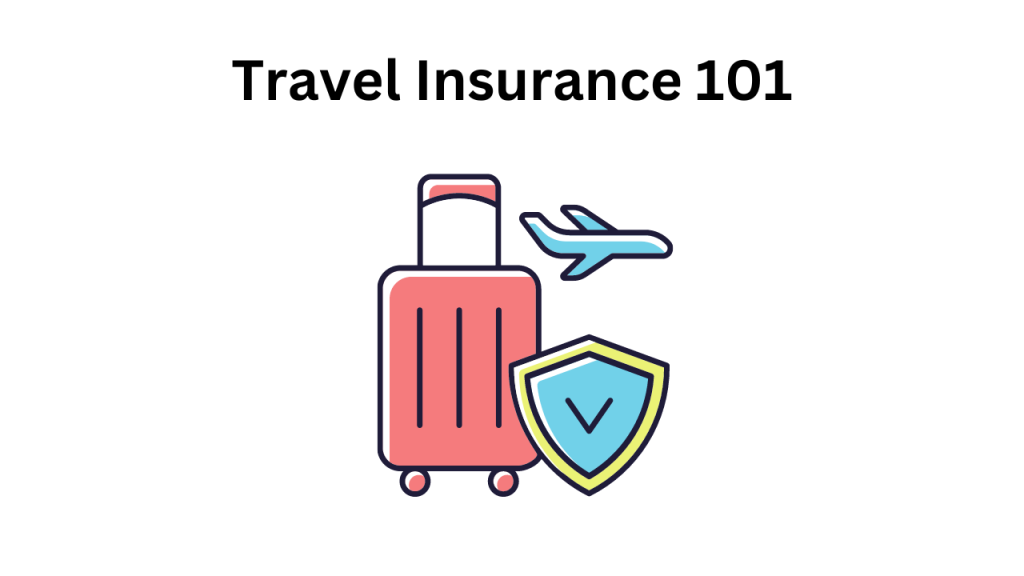Introduction
Traveling can be one of life’s greatest joys, but it also comes with its fair share of risks. That’s where travel insurance comes in. Having the right travel insurance can save you a lot of money and hassle if something goes wrong during your trip. Whether it’s a medical emergency, a canceled flight, or lost luggage, travel insurance provides peace of mind and financial protection. But with so many options out there, how do you choose the best policy for your trip? Let’s break it down.

Types of Travel Insurance
Trip Cancellation Insurance
Trip cancellation insurance covers you if you need to cancel your trip due to unexpected events. These could include illness, a family emergency, or even a natural disaster. This type of insurance ensures you get your money back for non-refundable trip costs, like flights and hotel bookings. It’s especially useful if you’ve booked expensive, non-refundable trips well in advance.
Medical and Health Coverage
This type of insurance covers medical emergencies and accidents while you’re traveling. It’s especially important if your regular health insurance doesn’t cover you abroad. Imagine getting sick or injured in a foreign country and having to pay out-of-pocket for medical care—medical and health coverage can help you avoid that scenario. Some policies also cover dental emergencies and pre-existing conditions, so be sure to check the specifics.
Evacuation Insurance
Evacuation insurance covers the cost of emergency medical evacuations and repatriation. If you need to be flown home or to the nearest hospital in a medical emergency, this insurance can cover those expensive transport costs. This is crucial for travelers visiting remote or less-developed areas where medical facilities might be inadequate.
Baggage and Personal Belongings Coverage
Losing your luggage or having it stolen can be a nightmare. Baggage and personal belongings coverage reimburses you for lost, stolen, or damaged items. Make sure to keep receipts and documentation for any claims you need to make. Some policies also offer coverage for delayed baggage, helping you cover the cost of essentials until your luggage is returned.
Travel Delay and Interruption Insurance
Travel delay and interruption insurance covers costs associated with delays and interruptions to your travel plans. This could include hotel stays, meals, and rebooking fees if your flight is delayed or if you need to cut your trip short for an emergency. It’s particularly useful during peak travel seasons when delays are more common.
Comprehensive Travel Insurance
Comprehensive travel insurance is a combination of the coverages mentioned above. It provides the most extensive protection and can be a good choice for many travelers. This type of policy is ideal if you want all-around coverage without having to purchase separate policies for different risks.
Key Factors to Consider When Choosing a Policy
Destination-Specific Risks
Different destinations come with different risks. For example, traveling to a country with a high risk of natural disasters or political instability might require more extensive coverage. Research the specific risks of your destination before choosing a policy. Also, consider the healthcare standards and accessibility in the region you’re visiting.
Duration of Trip
The length of your trip can affect the type of coverage you need. A longer trip might require more comprehensive coverage, especially for medical and health insurance. Long-term travelers or those on extended vacations should look for policies that cover long durations without significantly higher premiums.
Activities Planned
Think about the activities you’ll be doing on your trip. If you’re planning on participating in adventure sports like skiing, scuba diving, or hiking, make sure your insurance covers those activities. Some policies exclude high-risk activities, so you may need to add an adventure sports rider or look for specialized coverage.
Existing Coverage
Check your current insurance policies and credit card benefits. Some health insurance plans offer limited international coverage, and many credit cards provide travel insurance benefits. Knowing what you already have can help you choose additional coverage wisely. For instance, some premium credit cards offer trip cancellation or baggage delay insurance.
Policy Exclusions and Limitations
Always read the fine print. Understand what your policy does and doesn’t cover to avoid any surprises when you need to make a claim. Common exclusions might include pre-existing conditions, acts of war, or certain high-risk activities. Make sure the policy fits your specific needs and travel plans.
Tips for Selecting the Best Travel Insurance Policy
Compare Multiple Providers
Use comparison websites and get quotes from several insurance providers. This helps you find the best coverage at the best price. Websites like InsureMyTrip, Squaremouth, and TravelInsurance.com can help you compare options side-by-side.
Read Reviews and Ratings
Customer reviews and insurer ratings can provide valuable insights into the reliability and service quality of different providers. Look for consistent feedback about claim processing and customer service responsiveness.
Check the Claims Process
Understanding the claims process and response time is crucial. You want an insurer that makes it easy to file a claim and responds quickly. Check if the insurer offers 24/7 assistance and has a straightforward claims submission process.
Look for Customizable Options
Some insurance policies allow you to customize your coverage. This can be beneficial if you have specific needs or are planning unique activities during your trip. Customizable policies let you add or remove coverage options to suit your itinerary and personal preferences.
Seek Professional Advice
If you’re unsure which policy is best for you, consult an insurance broker or travel agent. They can provide expert advice tailored to your needs. Professionals can help you navigate complex policies and find the best value for your money.
FAQs About Travel Insurance
1. Do I really need travel insurance?
Yes, travel insurance can protect you from unexpected expenses due to trip cancellations, medical emergencies, lost luggage, and other unforeseen events. It’s a small investment for significant peace of mind.
2. When should I buy travel insurance?
Ideally, you should purchase travel insurance soon after booking your trip. This ensures coverage for any cancellations or issues that might arise before your departure. Some benefits, like trip cancellation coverage, are only effective if purchased within a certain time frame after booking.
3. Can I buy travel insurance if I have a pre-existing condition?
Yes, many policies offer coverage for pre-existing conditions if you meet certain criteria, such as purchasing the policy within a specified time after booking your trip. Be sure to read the policy details and consult with the insurer if you have any concerns.
4. Is travel insurance expensive?
The cost of travel insurance depends on factors like your age, the length and cost of your trip, and the coverage options you choose. Generally, it’s a small percentage of your total trip cost, making it a worthwhile investment for most travelers.
5. What should I do if I need to make a claim?
If you need to make a claim, contact your insurance provider as soon as possible. Keep all receipts, documentation, and any other evidence related to your claim. Follow the insurer’s instructions for submitting your claim to ensure a smooth process.
Conclusion
Choosing the right travel insurance policy is essential for a worry-free trip. By understanding the different types of coverage and considering your specific needs, you can select a policy that offers the best protection. Remember, travel insurance isn’t just about protecting your money; it’s about ensuring you have help when you need it most. So, take your time, do your research, and enjoy the peace of mind that comes with being well-prepared. Safe travels!


